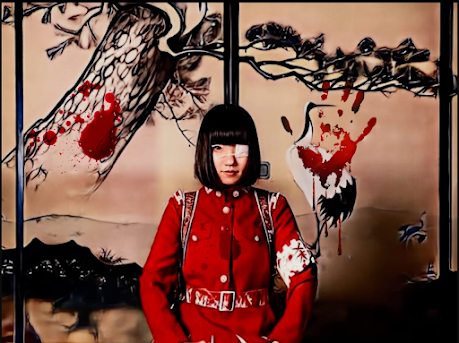Unveiling the Mystical Korean Folklore of Haircutting to Release Buried Emotions
In the realm of Korean tradition, where ancient beliefs and modern life intertwine, there exists a captivating practice that speaks to the connection between our physical appearance and emotional well-being. The act of cutting hair, often considered a routine grooming task, takes on a profound significance in Korean folklore. Rooted in centuries-old beliefs, this cultural phenomenon centers on the idea that cutting hair can sever emotional ties and alleviate inner turmoil.
The Origins and Significance
Korean folklore is rich with tales of spiritual encounters, mythical creatures, and rituals that bind the people to their cultural heritage. Among these, the practice of cutting hair to cut off feelings holds a prominent place. The origins of this tradition can be traced back to ancient shamanistic beliefs. Shamans, regarded as intermediaries between the human and spirit worlds, believed that emotions and energies became trapped within the hair, leading to inner conflict and negative emotions.
Cutting hair was thus seen as a symbolic act of liberation, a way to release the pent-up emotions that hindered one's spiritual and emotional growth. This practice also found its way into Confucianism and Buddhism, further emphasizing the notion of letting go of attachments for personal and spiritual development.
Cultural Rituals and Practices
Throughout Korean history, cutting hair to cut off feelings has been integrated into various cultural rituals and life events. One such instance is the "Doljanchi," a significant celebration held on a child's first birthday. During this event, a ritualistic haircutting ceremony takes place, symbolizing the child's transition from infancy to the early stages of childhood. It is believed that this ritual not only marks a physical transformation but also safeguards the child from negative energies and future emotional turmoil.
Another occasion where this practice is observed is during times of mourning. In Korean culture, hair holds a connection to one's ancestors, and during periods of mourning, family members often cut their hair as a sign of respect and grief. This act not only pays homage to the departed but also helps in the emotional release of sorrow.
Modern Interpretations and Cultural Resilience
In today's fast-paced world, where ancient traditions often find themselves at a crossroads with modernity, the practice of cutting hair to cut off feelings continues to endure, albeit with some contemporary twists. While the belief in trapped emotions within hair may have evolved, the act of cutting one's hair still symbolizes personal transformation, renewal, and emotional cleansing.
In recent times, Korean artists and cultural enthusiasts have explored this folklore in various art forms. Literature, films, and visual arts have all been mediums through which the emotional depth of this tradition has been conveyed to both the Korean population and the global community.
In conclusion, the captivating tradition of cutting hair to cut off feelings stands as a testament to the profound interplay between the physical and emotional realms in Korean culture. This practice, rooted in ancient beliefs, continues to evolve and adapt, offering a glimpse into the resilience of tradition amidst the winds of change. By understanding and cherishing this folklore, we gain not only a deeper insight into Korean heritage but also a universal understanding of the intimate connection between our outer appearances and inner emotions.




Comments
Post a Comment